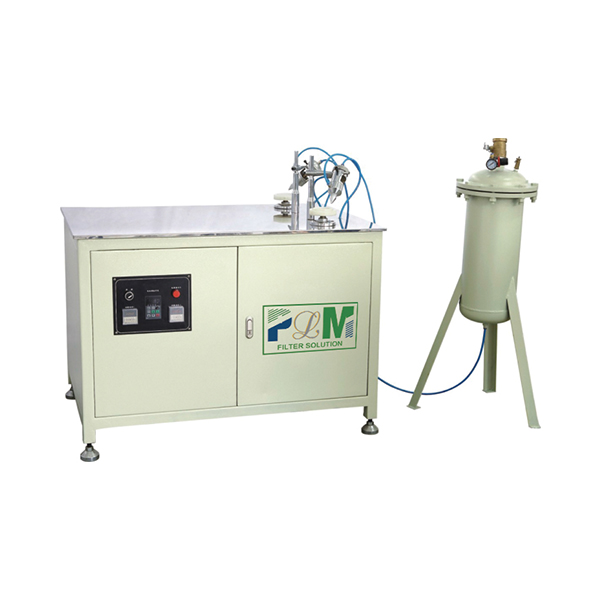Aug . 02, 2024 14:50 Back to list
High-Quality Cabin Air Filter Production Equipment for Optimal Air Quality Solutions
The Importance of Cabin Air Filter Making Machines in Automotive Manufacturing
In the ever-evolving automotive industry, the quality of air that circulates within vehicles has become a critical focus. As regulations on air quality tighten and consumers become more health-conscious, the demand for efficient cabin air filters has surged. This has led to a burgeoning need for advanced cabin air filter making machines that are capable of producing high-quality filters swiftly and cost-effectively.
Understanding Cabin Air Filters
Cabin air filters play a vital role in ensuring the interior air quality of vehicles. They filter out pollutants, allergens, dust, and other particulate matter from outside air before it enters the cabin. This is particularly important in urban environments where vehicles are exposed to high levels of pollution. By removing harmful particles, cabin air filters contribute to a healthier driving experience and can even enhance the longevity of a vehicle's HVAC system.
Given their significance, the manufacturing of cabin air filters is not just about producing a commodity; it involves ensuring that each filter meets stringent quality standards and performance criteria. This is where specialized cabin air filter making machines come into play.
The Technology Behind Cabin Air Filter Making Machines
Cabin air filter making machines are sophisticated pieces of equipment designed to streamline the production process. These machines incorporate several advanced technologies, including automation, precision engineering, and computer-controlled systems. They are capable of producing different types of filters, such as activated carbon filters, HEPA filters, and electrostatic filters, each designed to target specific pollutants.
The manufacturing process typically involves several stages, including material preparation, filter assembly, and quality control. Modern machines can automate these processes, significantly reducing labor costs and production times. For instance, the use of robotic arms can speed up the assembly of filter components, while sensors and imaging technology can ensure that each filter meets rigorous quality assessments before it leaves the production line.
cabin air filter making machine products

Enhancing Efficiency and Sustainability
In a competitive market, the efficiency of manufacturing processes can significantly impact a company's bottom line. Cabin air filter making machines contribute to operational efficiency by minimizing waste, reducing energy consumption, and optimizing production workflows. Many modern machines are equipped with features that allow for quick changes in production lines, enabling manufacturers to adapt to market demands swiftly.
Moreover, sustainability has emerged as a vital aspect of automotive manufacturing. With increasing pressure to adopt environmentally friendly practices, manufacturers are leveraging machines that facilitate the use of recyclable and biodegradable materials in filter production. This aligns with the global push towards reducing waste and promoting a circular economy.
The Future of Cabin Air Filter Manufacturing
As technology continues to advance, the future of cabin air filter making machines looks promising. Innovations such as artificial intelligence and machine learning are being integrated into manufacturing processes to enhance predictive maintenance, reduce downtime, and improve overall efficiency.
Additionally, the increasing electrification of vehicles necessitates the development of specialized filters that cater to electric vehicles' unique requirements. This presents an opportunity for manufacturers to innovate and expand their product lines through the use of advanced filter making technologies.
Conclusion
In conclusion, cabin air filter making machines are at the forefront of producing essential components that contribute to vehicle safety and passenger health. As the automotive industry continues to evolve, these machines will play a crucial role in meeting the growing demand for high-quality cabin air filters. By embracing advanced manufacturing technologies, manufacturers can not only enhance their production capabilities but also contribute to a cleaner, healthier environment for all. The future of cabin air filter production is bright, and it is intertwined with the innovations that these machines bring to the forefront of automotive manufacturing.
-
PLAB-6 A B Two Compounds Filter End Cap Gluing Machine - Hebei Filter Man | Precision Adhesive Application, Efficient Production
NewsAug.15,2025
-
PLAB-6 A B Two Compounds Filter End Cap Gluing Machine-Hebei Filter Man
NewsAug.15,2025
-
PLAB-6 A/B Two Compounds Filter End Cap Gluing Machine - Hebei Filter Man
NewsAug.15,2025
-
Premium Active Carbon Air Filter for Purifiers - Odor & VOC Removal
NewsAug.15,2025
-
PLAB-6 A B Filter Gluing Machine - Hebei Filter Man
NewsAug.14,2025
-
PLAB-6 A B Two Compounds Filter End Cap Gluing Machine-Hebei Filter Man Automotive Parts Trading Co., Ltd.|Adjustable Speed&Step Motor Control
NewsAug.14,2025
